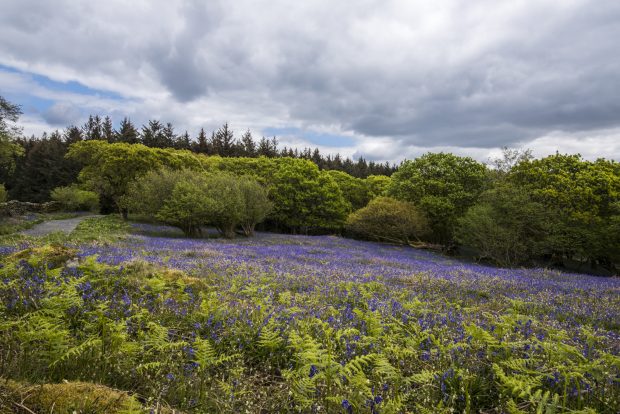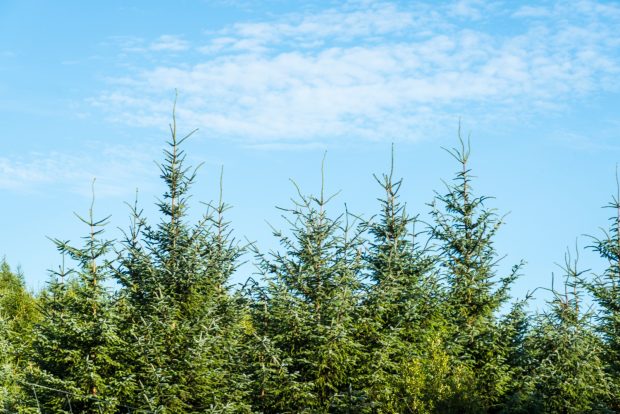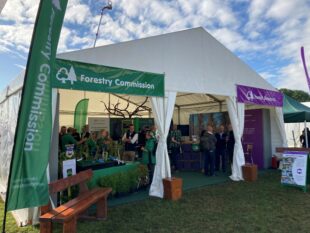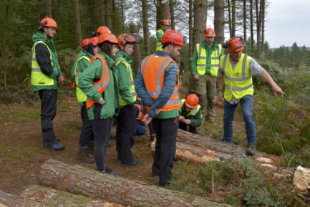
Coronavirus continues to affect us all, both personally and professionally. I want to let those who work in the forestry and timber sector know what steps the Forestry Commission has taken and how we are supporting our customers, partners and stakeholders.
The Government instruction is to stay at home, protect the NHS and save lives. That’s why the majority of our staff are working from home and why we have taken the decision to close all our non-essential offices. When it comes to visiting our forests, this should only be for essential exercise if you are local. Forestry England has asked people not to travel to the nation’s forests and has closed down car parks where it’s practical to do so.
But all of us at the Forestry Commission are determined to do everything we safely can to keep our work going in these challenging times.
Forestry is a primary industry supplying raw material essential to our response to coronavirus. Despite the outbreak, machine operators continue to harvest and hauliers continue to move roundwood from roadside to mill. Wood processors continue to make pallets to move food and medicines while others have supplied materials to build NHS Nightingale Hospitals. Woodfuel suppliers continue to keep boilers running in thousands of buildings around the country.
As the Government’s forestry experts we continue to carry out our function as industry regulator, plant health inspector and government adviser. We continue to approve felling licences, process grants and investigate illegal felling. We’re still carrying out critical tree health work, including the management of tree pests and diseases and port inspections that facilitate the import and export trade.

We continue to lead government’s work on assessing the impact of coronavirus on forestry businesses. Every day we use the huge network of contacts maintained by our Forest Services area teams to collect information from trade associations and businesses that keeps Defra and other parts of government appraised on how timber is flowing from forest to finished product.
We are working closely with Defra, the Devolved Administrations, Confor (the Confederation of Forest Industries) and our other forestry partners on this, sharing information on coronavirus impacts and policy and sector approaches and working toward a cohesive approach across the UK. Following discussions with industry, I was pleased that the government was able to designate those involved in the supply of timber and woodfuel as key workers, so they can access school provision for their children.
We know forestry businesses are suffering and we are looking at how we can use all the resources available to us to support the sector through what looks set to be a period of very difficult trading conditions. Forestry England will continue to manage the nation’s forests and supply timber to the market during the outbreak and our nurseries continue to operate and carry out essential tasks associated with plant supply.
I will take this opportunity to clarify the position on working away from home. While the government has asked us all to work from home where we can, that isn’t always possible for those whose livelihoods take them out into the forests. Presently, people can still work in the forests where they need to, provided they abide by social distancing measures. But please look out for any further decisions the government makes to help combat coronavirus.
And while we have taken the decision to temporarily suspend non-essential site visits, we are keeping this decision under constant review in light of government guidance. We are also developing alternative ways of working to enable us to work as closely as possible with agents, owners and businesses.
This remains a fast-moving situation. But by working together we will continue to find solutions to support the sector, while staying safe and following government guidance. Beyond the social disruption, the natural world follows all the cues of spring. The trees continue to grow and wildlife continues to thrive. And importantly, the need for trees and forests, and for the hard work of those who plant and manage them and process all that they produce, remains right through this public health crisis and will endure beyond it. I feel proud to be part of this industry and the role the Forestry Commission has in it.



1 comment
Comment by Geo posted on
The oaks are shrinking, sprouting profuse epicormic growth as an epic struggle against the burning of their crowns by elemental sulphur crystals , a pure toxic chemical in minute proportions, so small that the largest particles are as big one micron in diameter and many exhibit Brownian motion. Their toxicity is not proportional to their weight but their surface area. These ubiquitous crystals change phase ; sublime to a gas according to temperature and pressure. They are insoluble in water and easily seen as a light grey dust from stream water when dried on a glass surface.
Forget the search for Resilliance , examine the reenactment of the Carboniferous , rotting vegetation to produce flammable fuel and subsequent burning to produce ' green energy ', a misnomer.